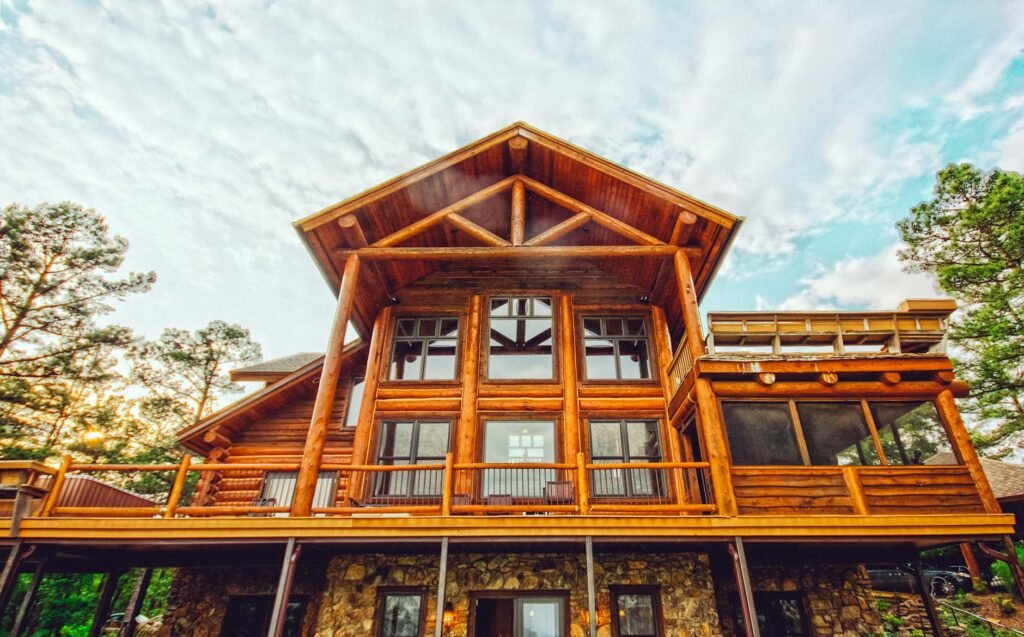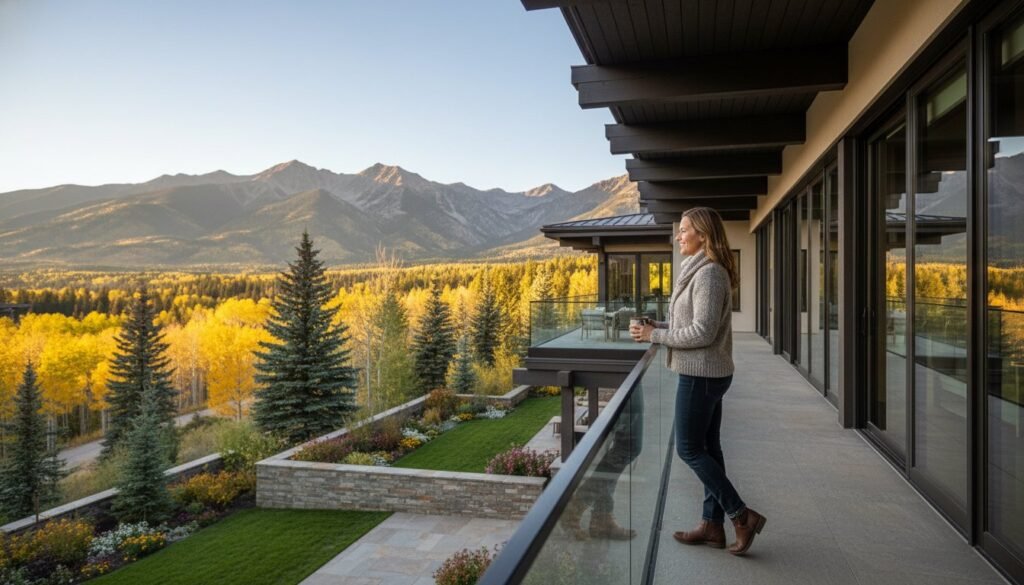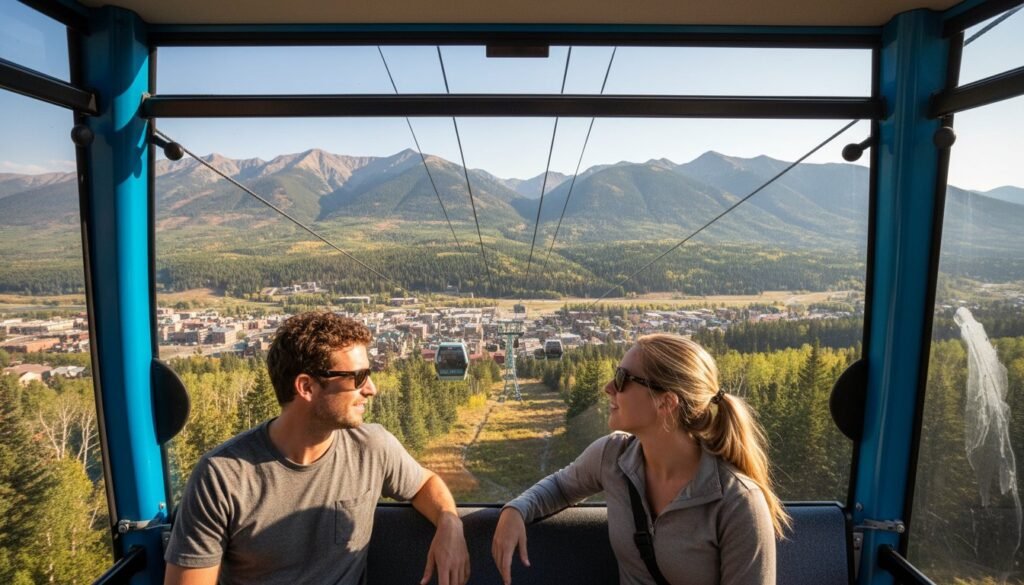
Short-Term Rental Laws in Colorado: A Complete Guide
So, you own a beautiful vacation home in Colorado, perhaps nestled in the mountains or near a bustling ski town. The thought of renting it out to eager tourists on platforms like Airbnb or VRBO is certainly appealing – who wouldn’t want to offset some costs or even turn a profit? But here’s the crucial part: understanding the local rules isn’t just a suggestion; it’s absolutely essential. Ignoring these guidelines, even unintentionally, can lead to some serious headaches, from hefty fines that eat into your earnings to frustrating legal battles, or even the dreaded loss of your rental license. Let’s make sure that doesn’t happen to you.
Why Understanding Local Laws Matters (More Than You Think!)
Colorado’s stunning landscapes and world-class resorts draw millions of visitors annually. This tourism boom has created a vibrant market for short-term rentals (STRs), but it’s also led to a patchwork of regulations across the state. Think of it like this: Colorado acts more like a friendly referee, letting each county and city set its own game rules for STRs. What’s perfectly fine in a resort-heavy area like Aspen might be a big no-no just down the road in a quieter residential neighborhood.

Why the varied approach? Local governments are trying to strike a delicate balance. They want to welcome tourism dollars, but they also need to protect the character of their communities, ensure there’s enough housing for long-term residents, and keep everyone safe. This means that failing to keep up with your specific local ordinances could lead to unexpected inspections, complaints from frustrated neighbors, and costly legal woes. Staying informed isn’t just about avoiding penalties; it’s about protecting your investment, your peace of mind, and your reputation as a responsible homeowner.
Overview of Statewide Considerations for Short-Term Rentals
While Colorado gives counties and municipalities the reins for most STR policies, there are a few foundational requirements that apply across the board. These are your baseline responsibilities as a vacation homeowner:
- Tax Obligations: This is non-negotiable. You’re responsible for collecting and remitting state and any applicable local lodging taxes. Think of it like sales tax for your rental. You’ll need to register with the Colorado Department of Revenue. While many booking platforms might offer to collect these taxes for you, the ultimate legal responsibility for accuracy and timely remittance still rests with you, the property owner. Always double-check!
- Insurance Coverage: Your standard homeowner’s insurance probably won’t cut it. You absolutely need to ensure your policy specifically covers rental use. Accidents happen, and you want to be fully protected in case a guest is injured or your property is damaged during a rental period.
- Safety First: Basic building and fire safety codes are paramount. This includes things like having working smoke detectors, carbon monoxide alarms, and clear, accessible exit routes. These aren’t just rules; they’re about ensuring your guests’ safety, which should always be your top priority
County Spotlight: Summit County Short-Term Rental Rules
Summit County, home to beloved destinations like Breckenridge, Keystone, and Frisco, is a hotbed for STRs. Because of its popularity, it has some of the stricter guidelines aimed at preserving neighborhood harmony and managing tourism impact.
- Permit Requirements: If you own property here and plan to rent it out short-term, a Short-Term Rental License from the county is a must-have. The county often categorizes permits based on zoning – for instance, “resort” zones might have different rules than “neighborhood” zones. Each zone typically comes with specific occupancy limits (how many people can stay) and parking requirements. Trust me, you don’t want to be the reason your neighbors can’t find parking. Non-compliance here can lead to daily fines that add up quickly, so get that license!
- Tax Obligations: Beyond the state taxes, you’ll also need to collect county sales tax and a local lodging tax. Again, registration with the Colorado Department of Revenue is required. Even if platforms like Airbnb handle some of the collection, it’s smart to confirm they’re doing it correctly and to understand your own filing responsibilities.
County Spotlight: Pitkin County Short-Term Rental Regulations
Pitkin County, which encompasses the exclusive ski town of Aspen, faces unique challenges due to its high demand and limited housing supply for local workers. As a result, its STR regulations are particularly stringent.
- Licensing Process: Expect to apply for an STR license annually. The application process is thorough, often including mandatory inspections to ensure fire safety, proper carbon monoxide detectors, and adherence to occupancy limits. What’s more, Pitkin County has been known to cap the number of available licenses or even pause new applications to control the impact on local housing, making it a competitive market for new STRs.
- Neighborhood Restrictions: This is where Pitkin County gets really specific. Some neighborhoods have outright bans on STRs, while others impose very strict noise ordinances and other rules. Violations often stem from neighbor complaints, so proactive communication with full-time residents is absolutely key. Introducing yourself, sharing your contact information, and making sure your guests understand and respect the local community norms can save you a lot of grief.

County Spotlight: Jefferson County Vacation Rental Policies
Closer to the Denver metropolitan area, Jefferson County presents its own set of considerations for vacation homeowners. While perhaps not as focused on ski tourism, it caters to visitors seeking mountain escapes or convenient access to the city.
- Zoning Rules: Before you even think about listing your property, you must confirm its zoning. Zoning regulations dictate whether a property is even allowed to operate as a short-term rental. Some residential zones might require a special use permit, which often involves a public hearing where neighbors can voice concerns. This process can be time-consuming and isn’t guaranteed, so always verify your zoning before investing in advertising or renovations.
- Health and Safety Standards: Jefferson County takes health and safety seriously. You’ll need to provide proof of working smoke detectors, safe and accessible exits, and for rural cabins, sometimes even water quality reports. Skipping these steps won’t just delay your license; it could put your guests at risk.
Common Mistakes Vacation Homeowners Make (And How to Avoid Them!)
It’s easy to get caught up in the excitement of generating rental income, but a few common missteps can quickly turn that excitement into a headache:
- Ignoring Local Codes: Many owners mistakenly assume that if their Homeowners Association (HOA) allows STRs, they’re good to go. Big mistake! Local city or county ordinances always override HOA policies. Your HOA might say “yes,” but the county might say “no,” and the county’s “no” wins every time.
- Forgetting Tax Registration: Thinking that because a platform like Airbnb collects some taxes, you’re off the hook for all of them. You still need to register with the Colorado Department of Revenue and understand your full tax obligations.
- Skipping Safety Checks: Overlooking mandatory safety inspections or failing to install required equipment like carbon monoxide alarms. This isn’t just about compliance; it’s about guest safety, which should be paramount.
- Poor Guest Communication: Not clearly communicating noise rules, parking restrictions, or trash disposal guidelines to guests. This is a surefire way to upset neighbors and invite complaints.
- Assuming “Ignorance is Bliss”: Believing that if you don’t know the rules, you can’t be penalized. Unfortunately, ignorance is rarely a defense against fines and legal action.
Tips to Stay Compliant and Avoid Fines
Staying compliant doesn’t have to be overwhelming. Here’s a checklist to keep you on track:
- Read the Fine Print: Seriously, download and read your specific county’s (and city’s, if applicable) entire STR ordinance. Don’t skim; understand every detail.
- License Up: Apply for the correct licenses and permits. Mark renewal dates on your calendar and submit them well in advance to avoid lapses.
- Safety First, Always: Install all required safety equipment, including working smoke detectors, carbon monoxide alarms, and fire extinguishers. Ensure exit routes are clear and well-marked.
- Set Clear Expectations: Create a detailed house manual for guests that clearly outlines all rules, especially regarding noise levels, quiet hours, parking, and trash disposal. Encourage them to be respectful neighbors.
- Document Everything: Keep meticulous records of all taxes collected and remitted, license applications, inspection reports, and any communication with local authorities or neighbors.
Considering a Local Property Manager?
For many vacation homeowners, especially those who live out of state or have multiple properties, managing a short-term rental can be a full-time job. It’s not passive income! This is where a local property manager can be an invaluable asset. They can handle a multitude of tasks, including:
- Navigating Licensing: They’re often experts in local ordinances and can manage the entire application and renewal process for your STR license.
- Guest Screening: They can screen potential guests to minimize risks and ensure they’re a good fit for your property and the neighborhood.
- Maintenance & Emergencies: They’re on the ground to handle immediate maintenance issues, guest lockouts, or any emergencies that arise.
- Neighbor Relations: A good property manager will act as a buffer, addressing neighbor concerns proactively and ensuring your rental operates harmoniously within the community.
- Tax Compliance: While you’re still ultimately responsible, they can assist with accurate tax collection and reporting.
The cost of a property manager can be well worth it for the peace of mind and the assurance that your rental is being managed professionally and compliantly. Peak property management offers real estate services in the counties of Summit, Lake, Eagle, Park, Jefferson and Pitkin in Colorado.
Frequently Asked Questions (FAQs)
Let’s tackle some common questions you might have:
- What’s the penalty for renting without a license in Colorado? Fines vary significantly by county and municipality, but they can be substantial, often reaching hundreds of dollars per day until you achieve compliance. Some areas might even pursue legal action or impose a permanent ban on your property operating as an STR.
- Do I still need to collect taxes if I use Airbnb or VRBO? Yes, absolutely. While many platforms collect and remit certain taxes on your behalf (like state lodging tax), you, as the property owner, are still legally responsible for ensuring all applicable state and local taxes are collected and filed correctly. Always verify what the platform covers and what you still need to handle.
- Can my HOA ban short-term rentals even if the county allows them? Yes, they absolutely can. HOAs often have covenants and restrictions that can be more stringent than local government regulations. If your HOA has a ban or specific rules, you must abide by them, regardless of county policy. Always check your HOA’s governing documents.
- How often do I need to renew my STR license? Most counties and municipalities in Colorado require annual renewal of your short-term rental license. This often includes re-inspections to ensure ongoing safety and compliance.
- What safety features are mandatory for my rental? Universally, you’ll need working smoke detectors on every level and in every sleeping area, carbon monoxide alarms (especially if you have fuel-burning appliances or an attached garage), and clear, unobstructed exit routes. Some jurisdictions may have additional requirements like fire extinguishers or specific window egress standards.
- Should I hire a lawyer to review my local regulations? It’s a very wise move, especially if you own multiple properties, if your property has complex zoning, or if you’re unsure about any aspect of the local ordinances. A legal professional specializing in real estate or property law can provide tailored advice and ensure you’re fully protected.
Conclusion
Operating a successful vacation home in Colorado means more than just having a beautiful property; it means being a responsible and informed owner. Understanding Colorado’s short-term rental laws isn’t just optional – it’s the foundation for a legal, profitable, and stress-free rental experience. By staying informed about your specific local rules in places like Summit, Pitkin, and Jefferson counties, you’ll protect your income, maintain your property’s value, and ensure you’re a good neighbor in the vibrant communities that make Colorado so special. Stay proactive, stay compliant, and enjoy the rewards of your vacation rental!



